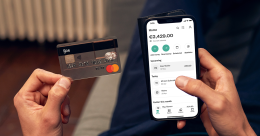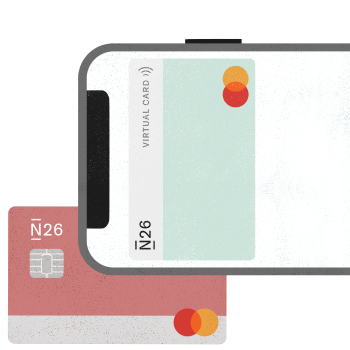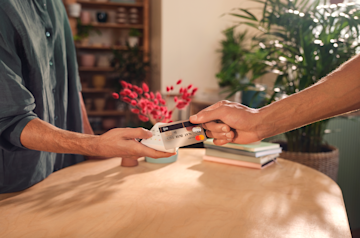Do you need a license to ride a scooter?
Before you consider buying a scooter, you’ll first need to check if you’re even allowed to do so! To ride a scooter with an output of less than 50cc, you must:- Have a driver’s license of any kind
- Or, have an “AM” license (formerly BSR). You can get an AM license after a short 8-hour practical course, accessible to anyone who has obtained their ASSR (School Road Safety Certificate) levels 1 and 2.
To ride a 125cc scooter, you have to have an “A1” license. To get this license, you need to have passed your theory and practical test, and have a minimum of 20 hours’ driving, or seven hours if you’ve held a B license for at least two years.Who is allowed to ride a scooter?
You can ride a scooter that’s less than 50cc starting from the age of 14, so long as you have an AM license. And if you were born before 1988, you don’t even need a driver’s license to ride a scooter.For a 125cc two-wheeler with an output of 11kW, the minimum age is 16 years old.The cost of scooter training lessons
To get your AM license (formerly BSR), expect to pay anywhere from €150 to €400 in France, depending on the driving school you choose. For the A1 license, the cost varies from €700 to €1,200 for 20 hours of driving, not including the cost of the highway code.Buying a scooter—the different scooter ranges
Which speaks to you more—a stylish Vespa, a vintage moped, or a sporty scooter? The price of your two-wheeler can start to snowball depending on the make, year it was registered on the road, condition, mileage, and horsepower.On average, you might pay:- Less than €1,000 for a new entry-level scooter. But be careful—these brands are often less well-known, which can make maintenance complicated down the line
- €1,000 to €2,000 for a new mid-range scooter
- €2,000 to €6,000 for a new top of the range scooter
The price of a new Vespa starts at €3,000, for example. If you buy one second-hand, the price starts at around €500.Only need a scooter some of the time? You might want to consider renting one for the day or week from a scooter rental site like Rider Club, or a self-service scooter rental like Cityscoot, Lime, or Troopy. If you’re going the self-service route, you’ll need to download the company’s app, register your details, and then pay per minute. As an example, at Cityscoot, the rates range from €0.28 to €0.39 per minute.Want to save money at your own pace?
Discover our N26 bank accounts, designed to make it easier to manage your money, every day.
Open my accountHow to choose a scooter
The type of scooter that suits you best depends on how you’re planning to use it:- If you need a scooter to make daily trips over relatively long distances, go for a new scooter—it’ll fare better on the road, and you’ll avoid unpleasant surprises.
- If you think you might need to take it on the motorway or the ring road, or if you’ll be carrying a passenger, a 125cc will be more suitable than a classic scooter
- For city trips, go for a scooter that’s easy to handle with small wheels, or even an electric scooter
Electric scooters
Ever considered investing in an electric scooter? Just like other alternative modes of transport, electric motorized two-wheelers are becoming increasingly popular in France. In 2020, electric two-wheelers represented 5% of the motorized two-wheeler market. Quiet, affordable, and easy on the environment—electric scooters have many advantages that set them apart from their gas-powered counterparts. Electric scooters don’t consume gas or oil, so they can save you money in the long run. Whereas a scooter running on gas costs an average of €5 per 100km, its electric equivalent will only set you back €0.30! And, if you buy a new scooter, you’ll benefit from an environmental bonus anywhere from €100 to €900, depending on its power. In terms of the vehicle itself, the price of an electric scooter varies from about €1,500 to €4,500.Important documents you’ll need to carry with you
Ready to take the plunge and buy your first scooter? Here’s what you’ll need to bring with you when you take it out for a spin:- An identity document
- Your AM or A1 license, or your B license
- The insurance certificate affixed to the scooter. This sticker is used to prove that your scooter is insured for public liability. It must be affixed to the vehicle’s front fork
- A vehicle registration certificate (carte grise), which is compulsory. This is free for scooters under 50 cc (excluding delivery costs). The price of the registration certificate for a 125cc scooter depends on the vehicle’s fiscal horsepower, the department you live in, and the date the vehicle was registered on the road. Find more information here.
Finally, don’t forget to insure your scooter! As well as mandatory third party insurance, which covers damage caused by you to a third party, you can add other types of cover. For example, for a new high-end scooter, it might be worth taking out anti-theft insurance. If you plan to ride with others, it’s advisable to take out insurance that covers them. If you’ll be riding your scooter every day, consider taking out driver damage insurance. Finally, don’t forget to take a good look at your deductibles—the sum you have to pay before insurance kicks in—to calculate what you’ll actually be paying in the event of an accident. It’s important to note that failure to insure a scooter is punishable by a fine of up to €3,750. The price of third-party or intermediary insurance for a 50cc scooter ranges from €400 to €700 per year.Scooter maintenance—how much does it cost?
If you want to ensure the longevity and handling of your wheels, you shouldn’t neglect maintenance and upkeep. Here are some tips for avoiding issues:- Some suggest running the engine for several minutes before hitting the road
- Check the oil level and tire pressure every month
- Have your scooter serviced regularly—ideally every 2,500km for a routine check, and every 5,000km for a comprehensive check. Expect to pay anywhere from €150 to €250 for a comprehensive check
As for the cost of gas for your scooter, set aside around 30 euros per month. Finally, you’ll also need to invest in accessories, which are essential if you want to travel safely and in complete comfort. A fully E-mark approved helmet costs €60 to €250, motorcycle gloves €20 to €50, an anti-theft device around €50 to €150, and a top box will set you back €60 to €200.Manage your budget with peace of mind with N26
Saving up for your first scooter? Then why not join the bank that makes budgeting and money management simple and stress free? Our N26 You, N26 Smart, and N26 Metal premium accounts give you access to innovative features like Spaces sub-accounts. These virtual piggy banks sit alongside your main account, helping you save money for your unique goals. Keep an eye on your outgoings with Statistics, which categorizes your spending, helping you cut costs and plan your monthly budget. Oh, and did we mention that you can do all of this right from your smartphone? Discover all our accounts and find the one that fits you best today.




